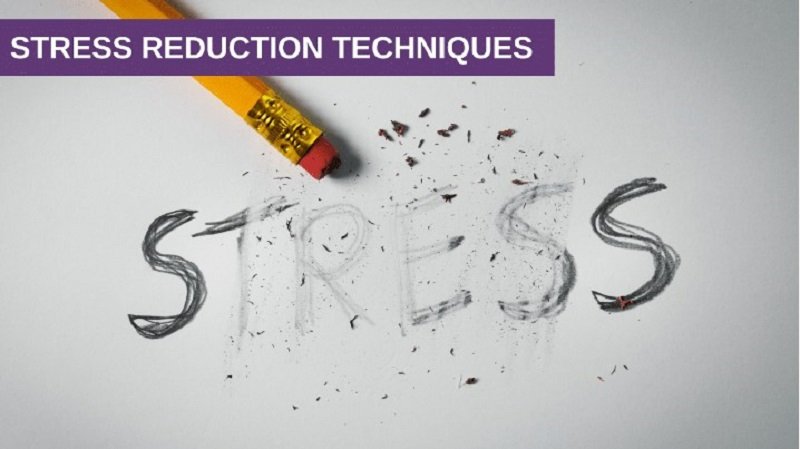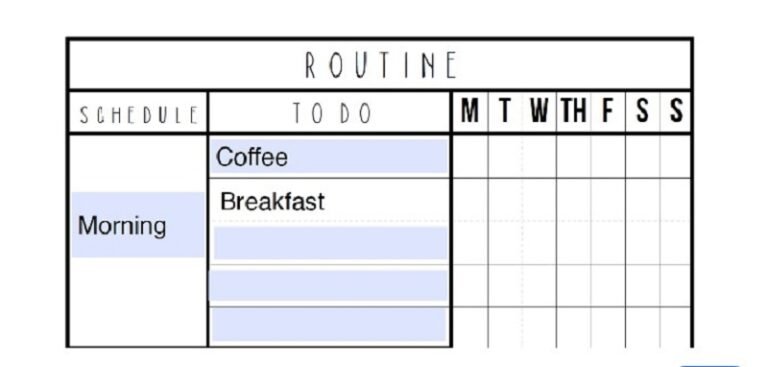Unwind the Tension: Tried and True Stress Reduction Techniques

Stress Management Techniques
Introduction to Stress Reduction
Hey there stress busters! Life’s like a video game these days, amiright? Fast, wild, and full of level-ups—and sometimes stress is the boss that just won’t go down. But don’t worry, I’ve got some hacks for you. Think of these stress reduction tips like power-ups for mental health. Techniques like mindfulness or tweaking your lifestyle habits are total game-changers for those with jam-packed schedules.
Backed by brainy folks in lab coats, these stress-reducing habits can do wonders for both your mental stability and your body’s balance. Programs like Mindfulness-Based Stress Reduction (MBSR)—honestly a fancy name but super effective—are proven to help calm those wild emotions and chill the physical stress monster. Trust me, even small changes can make your life about a thousand times better.
Impact of Stress on Mental Health
Let’s face it, stress is like that annoying sidekick we didn’t ask for yet somehow always sticks around. It’s a buzzkill for mental health, causing or aggravating things like anxiety, depression, and PTSD. Don’t just take it from me, the science-y types at PubMed have loads to say about it. Stress doesn’t stop at the mind—it’s got its sneaky hands on physical well-being too, increasing your chances of landing a ticket to heart disease town or diabetes city.
| Stress Impact | Symptoms You Might Notice |
|---|---|
| Mental Woes | Anxiety, Feeling Down, PTSD |
| Body Troubles | High Blood Pressure, Heart Risks, Sugar Woes |
| Lifestyle Mischief | Bad Eats, Sleeping Snags |
Fear not, for there are plenty of ways to kick stress to the curb. Breathing exercises, breaking a sweat, or diving into cognitive therapy are some great stress-fighting champs. If you need some support, feel free to connect with a healthcare expert; having a conversation with them might just provide you with that added advantage.
Knowing what or who your stressors are is half the battle. Equip yourself with the right moves, and you’re all set to steer the rollercoaster of life with a little more zen and a lot less panic. Curious for more? Check out our piece on beating stress with some killer coping strategies.
Mindfulness Practices
Present-Moment Awareness
Staying in the present moment, without those pesky judgments is like decluttering your mental attic. This down-to-earth approach can toughen up your stress defenses, making life a bit more upbeat and giving anxiety and the blues a run for their money. You’ll feel lighter, all-around content, and more at ease in your own skin (Mindful). For those young go-getters juggling life and stress, a sprinkle of mindfulness can be a game changer.
Studies show that being mindful can lead to feeling sprightlier, having fewer health hiccups, and chilling out a tad more (NCBI). Like picking up a new hobby, we can all get the hang of it and cash in on mindfulness perks with just a little practice.
Mindfulness Meditation Techniques
These meditation tricks are like having a Swiss Army knife for your mind—handy for tuning into the present and smoothing out life’s stresses. Here are two nifty ones to try:
Body Scan Meditation
The body scan is a journey of the mind—imagine a spotlight starting at your toes and slowly moving up to your noggin. It’s your detective work for catching tension and letting it go.
What’s in it for you?
- It cools down stress engines by lowering cortisol.
- Helps you kick back and relax (Mindful).
How to get into it:
- Find a cozy spot, settle down.
- Shut your eyes, take several deep breaths like you’re filling a balloon.
- Pay attention to your toes, what do you feel?
- Gradually shift this focus upward, piece by piece.
- Linger on each spot, letting go of tension—you’ll thank yourself later.
3-Minute Breathing Space
Think of this as your three-minute mental vacation when stress tries to gatecrash your day.
How to start the countdown:
- Plant yourself in a comfy seat.
- Spend a minute cruising through your thoughts and emotions without critique.
- Tune into your breathing. Each in-and-out gets the spotlight for a minute.
- For the last minute, absorb your body’s sensations, breath, and everything around.
These techniques are like little gems you can sprinkle into everyday life to manage frazzled feelings. Want to go down the rabbit hole of mindfulness? Check out our piece on relaxation exercises for stress.
Mindfulness jackpots include sorting out jittery feelings and improving everything from your noggin’s wiring to dealing with stress and sadness (NCBI). It’s a trusty sidekick for any stress-busting routine, loaded with practical tricks for healthier brain vibes and overall happiness.
If you’re looking to keep your cool and boost mental wellness, give our reads on stress management techniques and coping strategies for stress a peek.
Breathing Exercises
Taking a breather—not just when you’re tired, but to actually get your heart and mind on the same page—can be as simple as it sounds. Even when everything around feels like it’s on a fast track, these breathing moves can steer you back to calm.
Deep Relaxation Breathing
Now let’s talk about getting that breath deep down. Also known as belly breathing, it’s about taking big ol’ breaths that fill your lungs like balloons. This technique turns the volume down on stress by letting the “chill-out” part of your nervous system do its thing.
Here’s how to breathe like a pro:
- Get comfy—sitting or lying down, it’s your call.
- One hand on your chest, the other down on your belly.
- Inhale through the nose till your hand on your belly rises; chest stays quiet.
- Let it go sloooowly through your mouth and watch that belly fall.
Check out these steps for a quick reference:
| Step | What to Do |
|---|---|
| 1 | Get cozy in a seat or lying down |
| 2 | Hand on chest, hand on belly |
| 3 | Breathe in through the nose, belly moves out |
| 4 | Exhale through the mouth |
Spend just 5-10 minutes a day on this, and it can really ease that stress monkey on your back.
Breath Focus Practices
Put some oomph into your breathing by mixing it with imagination or mantras. By pairing every breath with a soothing image or word, you can steer clear of life’s stress potholes. A popular way to do this is by matching the length of your inhale and exhale.
Give it a whirl like this:
- Sit as you please, eyes shut.
- Nose in, count to five.
- Mouth out, match the count.
- Over time, slowly up that count from five to ten.
Here’s a little count guide to keep you on track:
| Inhale | Exhale |
|---|---|
| 5 | 5 |
| 6 | 6 |
| 7 | 7 |
| 8 | 8 |
| 9 | 9 |
| 10 | 10 |
Picture a calm sea or say words like “chill” or “easy” as you exhale to supercharge the calm vibes you’re after.
For more on how to handle stress, you might want to wander on over to some of our other reads on coping strategies for stress and relaxation exercises for stress.
Making these breathing exercises a part of your day can truly shift your stress management gears. For more cool tips, pop over to our stress management techniques section.
Music Relaxation
Listening to music is one of those glorious stress-busters. It can flip our mood, melt away tension, and wrap us in a cozy blanket of comfort. With the magic of music therapy and soothing tunes, you can find simplicity in unwinding.
Calming Tunes for Stress Relief
Chilled-out music can ease stress, chill your pulse, and turn your space into a haven of peace. Whether you’re into instrumental tunes, nature’s soundtrack, or your go-to mellow playlist, weaving music into your daily life works wonders for your mind and body. According to Mindful, these relaxing melodies do the trick for fighting off stress and help you snooze better.
Categories of Calming Music
- Classical Music: With its mellow vibes and smooth harmonies, classical music can calm the heart and lower stress levels.
- Nature Sounds: Think rain, ocean waves, and bird chirps—they create a peaceful soundscape that soothes the soul.
- Instrumental Music: Tunes without words, like piano or acoustic guitar, can be calming as they don’t distract.
- Binaural Beats: These sound illusions are created when two different tones ping each ear. It’s science mixed with a little magic.
Recommended Calming Tunes
| Category | Suggested Tracks/Albums |
|---|---|
| Classical Music | “Clair de Lune” by Debussy, “Moonlight Sonata” by Beethoven |
| Nature Sounds | “Forest Birds and Rain” by Nature Sounds, “Ocean Waves” by Nature Ambience |
| Instrumental Music | “River Flows in You” by Yiruma, “Acoustic Meditation” by Meditation Relax Music |
| Binaural Beats | “Relaxing Waves and Binaural Beats” by Brainwave-Sync, “Calm Mind Alpha Waves” by Binaural Beats Therapy |
These tranquil tunes don’t just help you de-stress; they can also tackle insomnia, making it easier to drift off and stay in dreamland.
For a DIY approach to zenning out with music, build a playlist of your favorite chill tracks and carve out some time each day to relax while listening. Got meditation on your mind? Let some background music jazz up your relaxation game.
If you’re keen on discovering more stress-busting tricks, dive into our articles on relaxation exercises for stress and coping strategies for stress. They’ll help you find the best ways to keep your head clear and your heart light.
Progressive Muscle Relaxation
Technique and Benefits
I’m always on the lookout for ways to bust stress that fit snugly into my hectic schedule. One gem I’ve stumbled upon is Progressive Muscle Relaxation (PMR). It’s a straightforward trick: tighten up a bunch of muscles as you breathe in, then let it go as you breathe out. It’s a real double whammy for both body and mind (WebMD).
PMR stops stress in its tracks, giving me a breath of fresh air when life’s chaos is raging on. Here’s a no-nonsense guide to trying it out:
- Get Comfortable: Sit or lie down where you feel cozy.
- Breathe Easy: Start with some nice, slow breaths.
- Squeeze Those Muscles: Begin with your toes, tighten those muscles for 5-10 seconds.
- Let Loose: Slowly let go of the tension with a nice, easy exhale.
- Work Your Way Up: Keep repeating, moving upward through all muscle groups.
Benefits of Progressive Muscle Relaxation
Adding PMR to my day really does wonders, both in my head and across my whole body. A regular habit of PMR can tune up your system in a few neat ways:
- Ease Anxiety and Stress: Zoning in on each muscle gives your brain a break from stressful thoughts, bringing on a peaceful vibe.
- Better Snooze Time: Doing PMR before bed can flush out built-up tension, helping you drift off easier.
- Feel More In Tune: With an eye on different muscles, PMR makes you more aware of how your body feels, spotting tension hotspots.
- Kick Out Aches and Fatigue: PMR is great for heavy heads, sore muscles, and that drained feeling stress brings.
Harvard Health Publishing backs this up too, stating how practices like PMR can swap the stress spiral for some sweet calm (Harvard Health Publishing). Want more options? Check out relaxation exercises for stress.
We’ve all got our stress hacks. I like to mix PMR with other chill activities like deep breathing and mindfulness. Give yourself a little me-time each day with PMR and notice the shift in your outlook and how you feel.
Here’s a handy cheat sheet for PMR:
| Steps | Action | Duration |
|---|---|---|
| 1 | Get comfy | 1-2 minutes |
| 2 | Take those deep breaths | 1-2 minutes |
| 3 | Tense each muscle group | 5-10 seconds each |
| 4 | Release that tension | 5-10 seconds each |
| 5 | Move on up | 1-2 minutes each |
If you’re keen to dig deeper, look into coping strategies for stress and mindfulness-based stress relief to really let go of all that pent-up tension.
Mindfulness-Based Stress Reduction (MBSR)
Overview and Effectiveness
Mindfulness-Based Stress Reduction, or MBSR, is like a toolkit for keeping life’s stressors in check using mindfulness. Picture it as a chill-out plan for the mind with a mix of breathing and gentle moves like yoga. Dreamed up by Jon Kabat-Zinn at the University of Massachusetts Medical School, it’s all about making stress just a little less bossy.
Research shows MBSR helps dial down anxiety, depression, and stress in many folks, even those in the fast-paced world of healthcare. Being part of an MBSR group often means feeling less frazzled and more tuned into yourself—like giving your psyche a nice, warm blanket (NCBI). It doesn’t always zap burnout or pump up resilience but sure makes dealing with stress less of a mountain.
Why MBSR Rocks:
- Chill out anxiety and depression
- Boost mindfulness mojo
- Nurture that inner peace
- A solid step toward feeling mentally zen
Adapted MBSR Programs
Got a jam-packed schedule? No worries, Adapted MBSR programs are here for you! These shorter MBSR versions are just as good as the long ones, perfect for the go-go-go lifestyle of young professionals. These trimmed-down options still pack the goodies—mindfulness activities and body awareness tricks—in a quick format.
Traditional vs. Abbreviated MBSR: What’s The Scoop?
| Program Type | Duration | Key Components | Effectiveness |
|---|---|---|---|
| Original MBSR | 8 weeks, 2.5 hr sessions | Mindfulness meditation, yoga, body scan | High |
| Shortened MBSR | 4-6 weeks, 1.5 hr sessions | Mindfulness meditation, yoga, body scan | High |
Look for details at NCBI
Both classic and short MBSR plans are great for boosting mindfulness, easing stress, and kicking mental health into gear. Curious about other strategies for keeping stress in the rearview mirror? Check out our stress management techniques.
Internal Links:
- Coping Strategies for Stress
- Relaxation Exercises for Stress
- Stress Management Activities
Rolling MBSR into your daily groove could be the ticket to managing stress and giving your mind a helping hand.
Lifestyle Factors and Stress
Managing stress? Lifestyle habits really make a difference. Exercise and diet? They’re like the dynamic duo when it comes to keeping stress in check. How, you ask? Well, let me break it down for you.
Impact of Exercise on Stress
Moving your body ain’t just good for your muscles—it’s a treat for your mind too! Exercise isn’t just about losing weight or getting fit; it’s about boosting mental health. Yeah, it helps with stuff like blood pressure and cholesterol, and it’s not just a fluke—it reduces the risk of illnesses like strokes and diabetes, fights off depression, and even holds back dementia. Because who needs all that, right? (Harvard Health Publishing).
When it comes to stress, aerobic exercise is your best bud. It shakes things up in your body and head, leaving you feeling relaxed, even a bit euphoric, and less likely to get caught in the cycle of anxiety or depression. It’s not magic—exercise knocks down stress hormones like cortisol and adrenaline and turns the dial up on endorphins, your mood’s best friends. (Harvard Health Publishing).
| Effect of Exercise | Impact on Stress |
|---|---|
| Lowers Blood Pressure | Calms the nerves |
| Improves Cholesterol Levels | Lifts spirits |
| Reduces Blood Sugar | Tames stress |
| Increases Endorphins | Promotes relaxation |
| Reduces Cortisol | Battles the blues and angst |
| Improves Sleep Quality | Kicks insomnia to the curb |
Need some tips on making exercise a stress-busting routine? Don’t miss our stress management guide.
Diet and Stress Management
Now, about diet—it’s not just about munching on good stuff. What you eat influences how stressed you feel. Eating right can level up your mood and shield your body from stress’s ugly side.
Certain eats are like superheroes against stress. Take complex carbs, for instance. They hike up serotonin levels—the happy hormone. So, dig into some oatmeal, whole-grain bread, or brown rice. Then you’ve got omega-3s, those wonder fats in fish. They kick stress hormones to the curb and might even fend off heart disease (Sleep Foundation).
| Nutrient | Food Source | Stress-Reduction Benefit |
|---|---|---|
| Complex Carbohydrates | Oatmeal, whole-grain bread, brown rice | Lifts serotonin sky-high |
| Omega-3 Fatty Acids | Salmon, Mackerel, Walnuts | Knocks down cortisol and adrenaline |
| Antioxidants | Berries, Nuts, Dark Chocolate | Shields against oxidative chaos |
| Magnesium | Leafy Greens, Bananas, Avocados | Balances brain chemicals |
| Vitamin C | Oranges, Strawberries, Bell peppers | Lowers cortisol army |
Stack up on a healthy diet and pair it with exercise to show stress the door. For more nifty stress coping tips, dig into our other sections on stress-busting activities.
Relationships Between Stress and Behavior
Digging into how stress twirls around with our daily actions can actually uncover some handy strategies to dial down the anxiety. Here, we’ll touch on how stress buddies up with exercise and the perks of doing your own little check-ins to manage stress levels.
Stress and Physical Activity
Stress loves to mess with your workout routine. Tons of studies out there show that when stress hits, we tend to skip exercise or just chill on the couch instead of breaking a sweat (PubMed). Big life events or even our own worries can make this situation worse.
Here’s a quick look at how stress plays the spoiler to physical activity:
| Factor | Impact on Physical Activity |
|---|---|
| Big Life Changes | Less Moving, More Sitting |
| Personal Worries | Hits Pause on Exercise |
| Ongoing Stress | Kills Motivation to Move |
| Sudden Stress Bouts | Blocks Workout Time |
Facts from PubMed
Whether you’re a grandparent or a college kid, stress has a knack for making us freeze instead of flex (PubMed). But surprise, 18.2% of people actually find themselves hitting the gym more often to blow off steam when things get rough.
To check out more ways to handle stress, hop over to our stress management techniques page.
Managing Stress Through Autoregulation Exercises
Autoregulation exercises can help you grab the stress bull by horns. These are personal, adjustable routines that groove with how you’re feeling on any given day.
Some of these baby’s got tricks are:
- Progressive Muscle Relaxation: You tense, you release—the perfect two-step for muscles to let go of stress. We’ve got a play-by-play on this over at relaxation exercises for stress.
- Breath Focus Practices: Take a deep breath in… and out. Breathing helps the mind chill. Find out more techniques over in our breathing exercises section.
- Mindfulness Meditation: Filling your head with now instead of ‘what if’ helps knock stress down. Find the tools you need in our mindfulness practices section.
Mixing stress-busting tricks with a bit of physical activity might just be the combo meal we all need for less stress in our lives. Still, mixing those two up in a formal way could use some more exploring.
Cracking the stress-code, understanding how it hijacks our workout plans, and using autoregulation exercises means we can all stay cool and keep our minds in check. For more stress busters, swing by our coping strategies for stress page.





